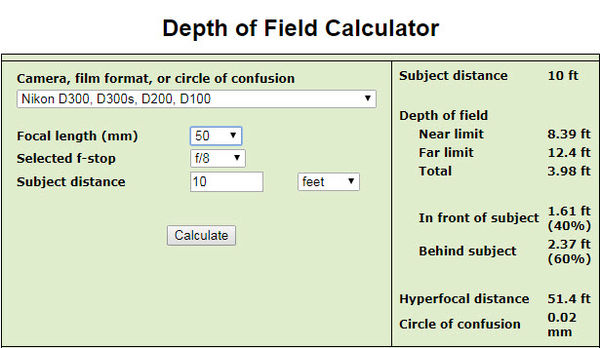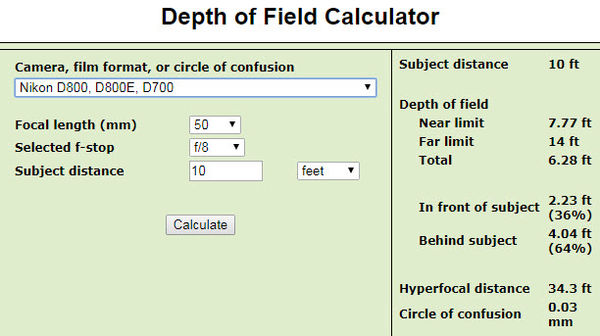FX lens on a DX camera...
Jan 23, 2018 22:37:35 #
First the myths...
Using a FX lens on a DX body is equivalent to using a FX lengh * 1.x
That is false. There is no magnification. What changes is the angle of view, the larger circle of diffusion is partially used. I hesitate to type 'cropped'. The first obvious change is that the DX field of view is reduced compared to a FX viewer. If there is more pixels in the DX sensor* it will appear that there is a magnification. This is far from the truth, there is simply a better definition and more details.
DoF is different
That is false. Since the lens has the same DoF given the same distance/aperture values the field of view does not change, period. Once again, some may think the DoF is 'longer'. It is not.
The reality is that a lens is a piece of hardware that does not change its characteristics depending on the body.
Then... Why on earth are folks saying that it is so much better to use a FX lens on a DX body???
Simple: The DX sensor can use only the circle of diffusion center. Basically say 'good-bye' to vignetting, distortion and fringing.
Note
FX and DX are Nikon 'jargon' to describe the size of their sensors. Other manufacturers use something else.
------
* Pixel array density
Using a FX lens on a DX body is equivalent to using a FX lengh * 1.x
That is false. There is no magnification. What changes is the angle of view, the larger circle of diffusion is partially used. I hesitate to type 'cropped'. The first obvious change is that the DX field of view is reduced compared to a FX viewer. If there is more pixels in the DX sensor* it will appear that there is a magnification. This is far from the truth, there is simply a better definition and more details.
DoF is different
That is false. Since the lens has the same DoF given the same distance/aperture values the field of view does not change, period. Once again, some may think the DoF is 'longer'. It is not.
The reality is that a lens is a piece of hardware that does not change its characteristics depending on the body.
Then... Why on earth are folks saying that it is so much better to use a FX lens on a DX body???
Simple: The DX sensor can use only the circle of diffusion center. Basically say 'good-bye' to vignetting, distortion and fringing.
Note
FX and DX are Nikon 'jargon' to describe the size of their sensors. Other manufacturers use something else.
------
* Pixel array density
Jan 23, 2018 23:19:31 #
Rongnongno wrote:
DoF is different
That is false.
DoF is different
That is false.
The usual reference is for EQUAL fields of view - in which case it IS TRUE.
Jan 23, 2018 23:23:38 #
Rongnongno wrote:
Why on earth are folks saying that it is so much better to use a FX lens on a DX body???
Because, when they convince themselves that since they have all this Fx glass they might as well get an Fx body.
"Gee Honey, the expensive part is the lenses, and I already have those....."
Jan 23, 2018 23:46:58 #
imagemeister wrote:
The usual reference is for EQUAL fields of view - in which case it IS TRUE.
Should have used field of acceptable sharpness.
Your statement implies that the DoF changes, this is flat out incorrect.
Jan 24, 2018 00:38:43 #
Rongnongno wrote:
First the myths... br color=navy Using a FX lens ... (show quote)
Do you mean that the DOF from a 100mm FX lens on a crop camera is the same as a 100mm DX lens on the same body OR do you mean that the DOF from a 100mm FX lens on a crop body is the same as a 100mm FX lens on a full frame body? (given the same aperture and subject distance)
Jan 24, 2018 00:48:14 #
TriX wrote:
Do you mean that the DOF from a 100mm FX lens on a crop camera is the same as a 100mm DX lens on the same body OR do you mean that the DOF from a 100mm FX lens on a crop body is the same as a 100mm FX lens on a full frame body? (given the same aperture and subject distance)
I mean: a FX does not change its characteristic if used on a DX.
Result a FX lens used at 10 meters with the same f11 aperture (example) as the same DoF regardless if it used on a FX or DX body.
The narrower angle of view does not change the lens.
I have not used at anytime the suggestion that I was comparing two lenses. I do not even know where you got that impression.
Jan 24, 2018 02:25:06 #
Rongnongno wrote:
First the myths... br color=navy Using a FX lens ... (show quote)
I use some fx lenses on my dx body because I want an fx body someday, if I can ever afford it! That is the only reason!
Jan 24, 2018 05:38:38 #
Rongnongno wrote:
First the myths... br color=navy Using a FX lens ... (show quote)
Actually DoF is SHALLOWER on a smaller sensor due to the smaller circle of confusion of a smaller sensor, if you examine the DoF of the same lens, same distance, same aperture, with the only difference being the camera body being used.
The online DoF calculator results below illustrate this point.
Jan 24, 2018 06:00:27 #
an fx lens on a dx body makes a good sales pitch. the only problem comes when using wide angle lenses. a 200mm fx lens gives the "effect" of a 300mm lens on a dx body. you are using the sweet area of the lens field. edge to edge sharpness has always been an issue, this solves the side edge to edge issue. in the film era lens makers tried to design lenses with edge to edge sharpness. some camera makers used a curved film plane to solve the problem. there has been some talk of some camera mskers developing a curved sensor for fx bodies.
Jan 24, 2018 06:05:50 #
Gene51 wrote:
Actually DoF is SHALLOWER on a smaller sensor due to the smaller circle of confusion of a smaller sensor, if you examine the DoF of the same lens, same distance, same aperture, with the only difference being the camera body being used.
The online DoF calculator results below illustrate this point.
The online DoF calculator results below illustrate this point.
Sorry Gene but nowhere in your post to I see the lens selection as being the same (FX on a DX body).
Same lens (FX lens on FX body and DX lens on DX body) with the same parameter will produce different results, as you illustrated.
Jan 24, 2018 06:38:31 #
Rongnongno wrote:
Sorry Gene but nowhere in your post to I see the lens selection as being the same (FX on a DX body).
Same lens (FX lens on FX body and DX lens on DX body) with the same parameter will produce different results, as you illustrated.
Same lens (FX lens on FX body and DX lens on DX body) with the same parameter will produce different results, as you illustrated.
Simply put on a given body it doesn't matter if a lens is dx or fx the dof will be the same.
If you change camera bodies to one with a different pixel size the dof will be different to the first camera but not different between the fx and dx lens. Its the sensor difference that makes the change not the lens.
Perhaps the more important take is you can't get quite the same results with the same settings with different camera models.
Can you see the difference, with my eyes, not really even wearing my glasses :)
I guess that makes camera's have a unique viewpoint, so a D750 will not see a scene exactly the same as a D850 even with the same lens mounted. Does it matter, does one or the other have an edge in making beautiful photo's?
Maybe the Leica folks have a point with the "Leica look".
Jan 24, 2018 06:52:01 #
Rongnongno wrote:
First the myths... br color=navy Using a FX lens ... (show quote)
True if both images are taken at the same distance and with the same lens, viewed or printed where the subject is exactly the same size. But why would anyone want to do that.
Jan 24, 2018 07:30:28 #
billnikon
Loc: Pennsylvania/Ohio/Florida/Maui/Oregon/Vermont
Rongnongno wrote:
First the myths... br color=navy Using a FX lens ... (show quote)
Nice explanation but it is much easier for folks to understand that if you just multiply by 1.5 it is much easier to understand. IE. A 10 mm FX lens becomes a ( 10 X 1.5 = 15) 15 mm lens on a DX body. That is the SHORT of your LONG explanation. Why do folks try to muddy the waters with BLA BLA BLA BLA when it could be done with a single BLA.
Jan 24, 2018 07:43:15 #
Rongnongno wrote:
First the myths...
Using a FX lens on a DX body is equivalent to using a FX lengh * 1.x
Using a FX lens on a DX body is equivalent to using a FX lengh * 1.x
Not a myth but a reality. It produces an equivalent result.
Jan 24, 2018 08:19:37 #
jerryc41 wrote:
Not a myth but a reality. It produces an equivalent result.
no it produces an equivalent field of view between cameras with different sensor sizes. There are other factors to consider too , if you want to.
On an aps-c camera put on a 50mm dx lens then try a 50mm fx lens did the field of view change?
When taking a photograph unless using an identical camera and lens there will be different results, some differences, well its personal taste really. Better tends to be subjective, a lot of people obsess over sharpness. No matter how sharp a photo is it can still be a lousy photo.
There are a whole combination of factors which go to make up a photo, some big some small, over all technical mastery is still inferior to good composition and light. It just seems easier to work on :)
If you want to reply, then register here. Registration is free and your account is created instantly, so you can post right away.









